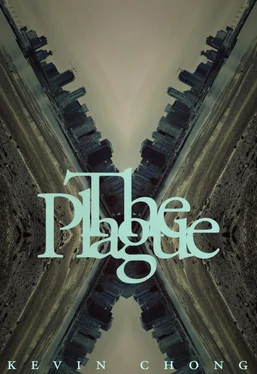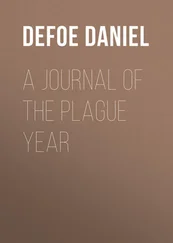“It can be a curse,” she told him. “You’re always promising people—without even promising them—more than you can deliver.” She made so much eye contact, it felt like she was showing off.
“But people beg me to make promises—to predict outcomes, to give assurances,” he said, turning to his glass. He downed the wine in a gulp. “At least that’s how it is in my line of work.”
“Are you worried you’ll get sick?” she asked.
He shrugged. “I take every precaution. If I get sick, it will be because I am doing my work.” Her attention drifted to the candle between them, which allowed him to continue thinking through her question. “I see patients, good people who have led healthy lives, fall ill for no reason other than genetics or bad luck. Dropping dead during this quarantine would at least serve some purpose.”
“I’m not worried about dying. I wrote a book about it—”
“I haven’t read it. Sorry.”
“I’m not book-shaming you. The gist of the book was, dying gives life meaning. We clear space and feed the earth when we pass on.”
“That’s common sense,” he blurted out, then realized how rude he sounded. “Sorry, that didn’t—”
“The wine’s really gotten to your head,” she told him, pouring the rest of the carafe into his glass. “Yes, you’re right, the book doesn’t reshape the history of thought. But what I was trying to do was shift, in a small way, our collective mindsets. I told readers to start planning their funerals in their thirties, not when they’re in their eighties and on their deathbeds. I wanted them to think about the people they leave behind—family, friends—as a gift.”
“So you’re in good shape for this epidemic?” he asked her.
“No way. Death I can handle, but being sick frightens me. Not having family or anyone who knows me well enough to call a good friend, should I fall mortally ill, scares me. I figure Janice is my only lifeline.”
When they’d finished their wine, Rieux paid the bill, despite Tso’s protest, and then waited with her until she got into a cab. He didn’t remember his walk home but woke up in bed with his hiking boots on. He clomped into the bathroom and vomited. In a panic, he took his own temperature and concluded he was only hungover (without having had much to drink). Remorse washed over him, a feeling that exceeded anything he did or admitted to feeling. In the churning of regret, he was possessed by a need to speak to Elyse. He tried the number she’d given him, but the call didn’t go through because he hadn’t used the proper country code. When he got a recorded message asking him to try again, he didn’t bother to search for the correct number. Instead he dialled the clinic and told the receptionist he was feeling unwell.
Rieux left the house to sidestep his concerned mother. He took his bike out but was forced to choose the roads carefully. A patch of black ice would further strain the medical system. He stopped on Broadway to chug a bottle of water and find something to eat. His ambitions that day were to expend some physical energy. He hoped to ride to the university and back. While in line for his bagel, he received a text from Castello. She wanted to see him at the hospital. “I’m calling in a favour,” she wrote. “Actually, I am calling in two.”
They had not spoken since her tirade of frantic messages. Rieux replied that he was on his way. The day had opened up like one extended airport layover as soon as he called in sick, so he was relieved by Castello’s invitation. He biked along the Seawall, a ride made easier by the absence of tourists, enjoying the burn of the frosty air on his cheeks.
Castello waited outside the doors of the auxiliary hospital—a wing of the unfinished medical centre that would replace St. Paul’s Hospital the next year—reserved for patients with the disease. She had a new blunter hairstyle and was wearing makeup. She swiped Rieux in and led him to a room where they both changed into protective clothing. “We are short-staffed in the auxiliary hospital,” she told him. “You used to work a day a week in the lung clinic. I was wondering whether I could convince you to work here for a couple of shifts.”
She knew he would be curious. And she knew that he never declined her requests. “Someone I know was admitted yesterday,” he told her. “May I visit him?”
Castello pointed at a nurse behind the desk who asked for the patient’s name. “His last name is Grossman,” he told her. “I don’t know his first name. He would be in his sixties. He was admitted last night.”
The nurse turned to her screen and leaned into it. “There was an Isaac Grossman who passed away last night, two hours after he was admitted. But he was eighty-five years old.”
Perhaps he was young-looking for his age, thought Rieux. It seemed unlikely that two people with that name would come in at the same time. His bloody coughing was, in retrospect, a terminal event, a flag of surrender from betrayed lungs.
“Sorry,” Castello said. “Come with me. You should take a look at what we have here.”
There was a range of suffering here, from those moaning listlessly in agony—fresh admittees—to those who looked content in their disease-racked repose. Castello and Rieux visited the bed of a fifty-one-year-old man who had been one of the first people admitted for the bubonic version of the disease. Within the first day, he had developed disseminated intravascular coagulation—a clotting of the blood followed by organ failure—and was placed in an induced coma. His legs became gangrenous and needed to be amputated.
“He woke up for the first time yesterday and asked the nurse to scratch his toes,” Castello said, her dry laugh like a snare beat.
The patient was sleeping. He had the kind of handsome, imperious face that one saw immortalized in stone, on horseback, in a European capital—possibly he was a banker or lawyer. He needed a shave and for someone to run a comb through his silver hair. But this man was one of the lucky ones. The odds of dying of the disease were comparable to winning the lottery; so were the odds of surviving it. He was intact—more or less—and soon he would be transferred to another wing in the hospital for rehabilitation.
“He doesn’t look like somebody who should be sick, am I right?” Castello asked. “The disease can strike anybody, but he looks like someone who gets all the breaks in life.”
“I don’t believe in eugenics,” Rieux said. “But I see what you mean.”
“Victor thinks his DNA makes him invincible,” Castello said. “Do you know that my surname is the Italian word for castle?”
“I didn’t, but it makes sense,” Rieux replied.
“Victor’s family comes from a town two hundred kilometres from Florence. The other day he told me that he’s descended from plague survivors. He was bragging. He believes that people with Southern European ancestry have genes that will protect them from this new outbreak.”
“I’m glad you’re talking to him again,” he told her. “His views were always … provocative.”
“It’s not entirely fun,” she said. “But we still have our secret language. It gets tiring to ask questions no one else can answer.”
Rieux offered himself for shifts in the auxiliary hospital whenever they didn’t conflict with his duties at the clinic. He dreaded his evenings alone with his mother even as he regretted neglecting her.
“I have one more request,” Castello said as they removed their protective gear and washed their hands. “This one is more personal.”
The man responsible for her son’s death would be having a parole hearing later that week. Castello would be giving a victim’s impact statement. Her lawyer had asked for a delay in the hearing given her high-profile role in the disease resistance efforts, but to delay his hearing would affect the killer’s rights. She wanted Rieux to attend. “Victor will be there, if you can’t make it,” she told him. “But even when we were happily married, he was never someone I could lean on.”
Читать дальше












